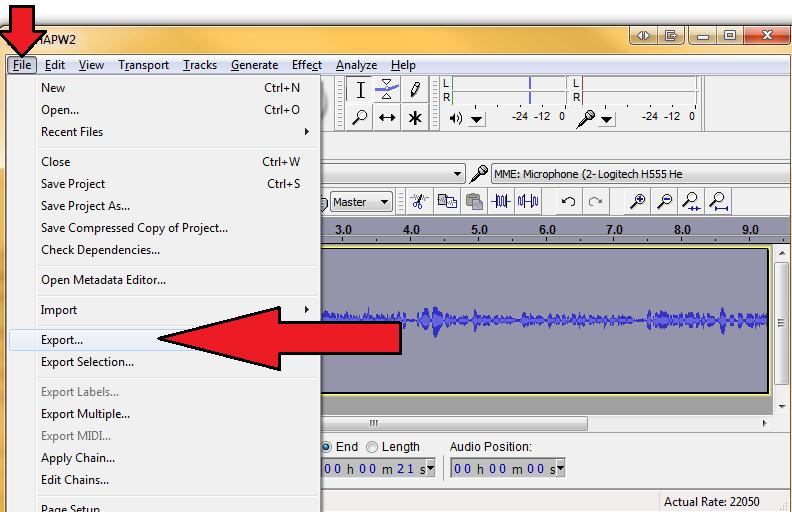Core content below modified from Snafder's Hood.
- Audacity can be used to create .WAV files in the CCITT U-Law 8-bit format required for VOIP audio requirements.
- Audacity is FREE for commercial use. Excerpt taken from Audacity’s website:
- “Is Audacity really free? Why?
Yes, Audacity is completely free, open source software. You are free to use this program for any personal, commercial, or educational purposes, including installing it on as many different computers as you wish.”
- Record the audio however you see fit, Audacity can be used directly; however you can record in any application and open the file in Audacity later.
- Once you have the file loaded in Audacity (or recorded), do the following:
- In Audacity, set the 'Project Rate (Hz)' in the bottom left hand corner to ‘8000’.
- It is also important that you have it set to MONO (one channel only).
This can be achieved by clicking on the drop down arrow of the track and selecting ‘Split Stereo to Mono’ and then clicking the ‘x’ on one of the now separated tracks. 
- Now it’s time to export the file…
- Select 'File'.
- Select 'Export'.

- Change the 'Save as type' to 'Other uncompressed files' (yes, it’s a bit misleading as it will make a file that is a lot smaller than the 44000 Hz WAV equivalent - but it isn't actually compressed, simply less samples a second and therefore a smaller file size).
- Click the 'Options' button (bottom right).

- Select 'WAV (Microsoft)' for 'Header'.
- Select 'U-Law' for 'Encoding'.
- Click 'OK'.
- Choose a name and enter it into 'File name' field (no need to enter the extension .WAV – it will automatically add it).
- Click 'Save'.
- Click 'OK' to the 'Edit Metadata' screen (don't enter ANY metadata).

Remember, if you don’t set 'Project Rate (Hz)' in the bottom left hand corner to ‘8000’ and don’t make it mono, choosing ‘WAV (Microsoft)’ and ‘U-Law’ won’t be enough!

